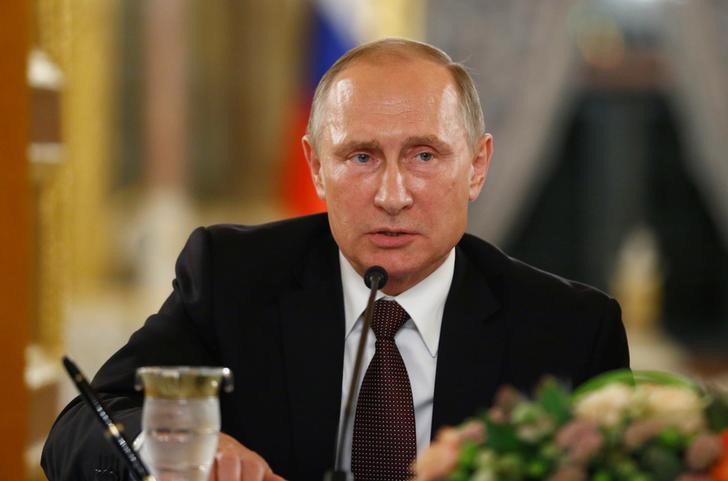By Geoffrey Smith
Investing.com -- Thinking of trading Vladimir Putin's alleged departure from power? Then it's probably best to think again.
The British Sun and the New York Post have both reported in the past 24 hours that the Russian President is set to step down early next year due to ill-health, in a move that would create, at least temporarily, a vacuum of power. Given the historical unpredictability of power transitions in Russia, that would normally be a negative for the country's financial markets.
However, there is plenty of reason to doubt the reports, even if one discounts the comment from Dmitry Peskov, Putin's press secretary, on Friday, describing them as "pure nonsense."
Getting the truth about a President's health from official channels is a tricky business at best - as the communications around Donald Trump's and Jair Bolsonaro's bouts of Covid-19 have shown very clearly - and the ultra-loyal Peskov is no exception to the rule.
More importantly, though, both the reports appear to be questionable journalism, based on a single source: a Moscow-based political scientist called Pavel Solovei, a man with a track record of peddling conspiracy theories that have proved to be unsubstantiated. More sober news outlets with strong local presence, such as Reuters and Bloomberg, have steered clear of the story.
Like all conspiracy theories, this one has enough corroborative circumstantial evidence to give it a semblance of credibility. Specifically, the Duma, Russia's parliament, gave a first reading this week to a bill that will give former Presidents a place in the Federation Council, the equivalent of the U.S. Senate, a seat for life. This has the practical effect of giving Putin and Dmitry Medvedev, who was President from 2008-2012, lifelong immunity from prosecution.
The bill is thus a safety net that would make it easier for Putin - who has faced countless allegations of corruption from opposition voices during his long rule - to leave office safely when he wishes.
In addition, rumors that Putin suffers from Parkinson's - a progressive disease whose effects become more pronounced over time - are not new. They first surfaced in 2015 after the British Medical Journal observed asymmetric arm swings in his gait. While the Sun and Post reports cited a recent TV appearance in which he appeared to be in pain, Putin has discharged plenty of official duties in front of live television this year without any obvious discomfort.
To all this, one could add that the Sun and New York Post are both owned by Rupert Murdoch's News Corp (NASDAQ:NWSA). Murdoch has had a personal animus against Putin ever since he was chased out of Russia's lucrative outdoor advertising market 15 years ago, although it's far from clear that this has informed editorial decisions in this particular case.
What's more important for Russian markets in the short term is the outcome of the U.S. election, and the price of oil. A split Congress makes it harder for the Democratic Party to exact revenge for what it sees as Russian interference that cost it the 2016 presidential race (although a President Joe Biden could still do much with executive orders alone).
As for the price of oil - that depends largely on Russia's own actions. It can support prices by postponing a production increase currently scheduled by the 'OPEC+' bloc for the start of next year. Algeria's oil minister and current OPEC President said earlier this week that Russia and Saudi Arabia are currently lobbying other members of the group to do just that.
Irrespective of that, the ruble and other emerging currencies and stock are obvious beneficiaries of the renewed weakening of the dollar since the U.S. elections. Even after today's tremor, the ruble is still up 2.5% against the greenback this week, while the RTS is up 8.8% - and that's despite a record surge in Coronavirus cases.
